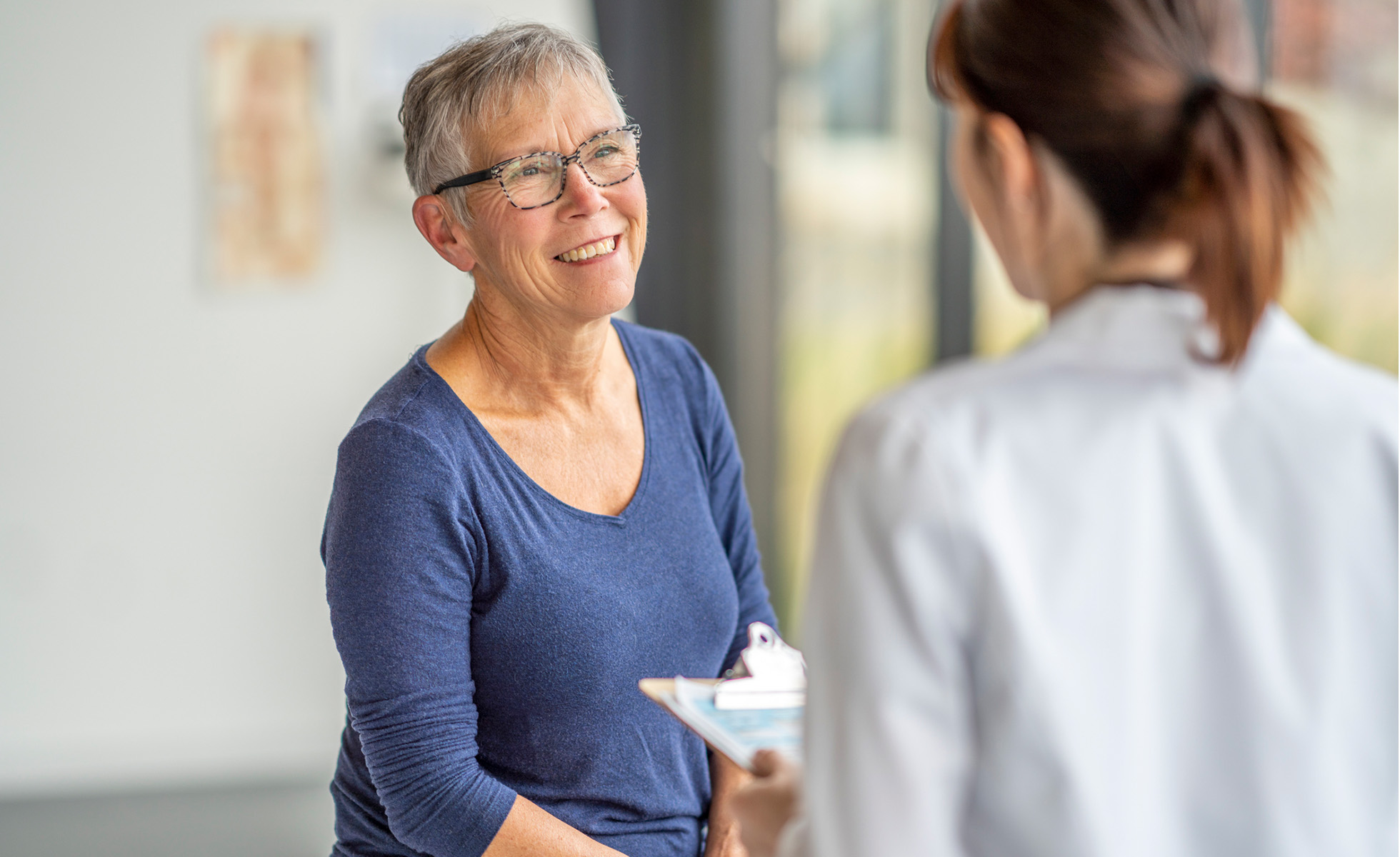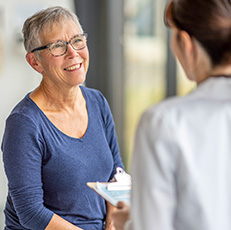

Skin Cancer Program
- About Us
-
Cancer Care
-
Our Cancer Programs
- Adolescent and Young Adult Cancer Program
- Blood Cancer & Hematological Malignancy Program
- Blood Disorder (Hematology) Program
- Breast Cancer Program
- Cancer Genetics Program
- Cancer Risk Reduction and Education Clinic
- Cardio-Oncology Program
- Childhood Cancer Survivorship Program
- Endocrine Tumor Program
- Eye Cancer Program
- Gastrointestinal (GI) Cancer Program
- Genitourinary Cancer Program
- Gynecologic Oncology Program
- Head and Neck Cancer Program
- Liver Tumor and Cancer Program
- Lung Cancer Program
- Neuro-Oncology (Brain Tumor) Program
- Neurofibromatosis Program
- Pediatric Neuro-Oncology Program
- Pediatric Oncology Program
- Pediatric Sarcoma Program
- Pediatric Thrombosis Program
- Radiation Oncology
- Sarcoma Cancer Program
- Skin Cancer Program
- Supportive Cancer Care Program
-
Screening and Diagnosis
- Cervical Cancer Screening Guidelines
- Colorectal Cancer Screening
- Endometrial (Uterine) Cancer Screening Guidelines
- Hepatitis and Cancer
- HPV Vaccine and Screenings
- Liver Cancer Guidelines
- Lung Cancer Screening
- Mammogram
- Ovarian Cancer Screening Guidelines
- Prostate Cancer Screening Guidelines
- Skin Cancer Screenings
- Sun and Skin Safety
- Tobacco Use and Cancer
- Skin Cancer Screenings
- Cancer Genetics Program
- Cancer Survivorship Program
- Cancer Treatments
- Conditions
-
Our Cancer Programs
- Clinical Trials and Research
- Donate and Volunteer
- Education
- Patients and Families
- Appointments
- Doctors and Locations
-
Community Outreach and Engagement Program
- Message from COE Leadership
- South Texas Cancer Burden and COE Areas of Work
- Our COE Impact
- COE Community Advisory Board
- COE Publications
- Avanzando Caminos (Leading Pathways) Study
- Estudio Avanzando Caminos (Leading Pathways)
- San Antonio Firefighters Cancer Prevention Program
- STAR Immunotherapy Study
Skin cancers are incredibly common, making up the majority of all cancer cases. Because ultraviolet (UV) radiation from sunlight plays a large role in skin cancer, it’s important to protect your skin in sunny South Texas.
Our dermatologists care for all types of skin cancers. You can access leading skin cancer treatments, including Mohs surgery, considered the “gold standard” for treating many skin cancers. Many patients experience only minimal scarring after surgery.
Our team also can partner with you to protect your long-term health. Learn about our comprehensive skin cancer screenings.
Skin cancers we treat
Why choose us for skin cancer care?
We care for people who have all types of precancerous growths and skin cancer. We commonly treat basal cell carcinoma, squamous cell carcinoma and melanoma.
Highlights of our program include:
- Multidisciplinary care: Dermatologists work closely with other cancer experts and specialists, such as plastic surgeons, to ensure well-rounded care for early-stage and advanced skin cancers. Our dermatologists partner with ophthalmologists (eye physicians) who are highly trained to treat skin cancers near the eye, including eyelid cancer. This collaborative approach enables us to personalize a treatment plan to your needs, based on proven cancer protocols and leading research.
- Highly skilled specialists: All of our dermatologists are board-certified in dermatology. This rigorous training requires doctors to analyze thousands of skin lesions underneath a microscope. Our expertise helps us deliver a precise diagnosis and the most appropriate treatment for each type of skin cancer, including rare and complex cases.
- Advanced treatment options: Our team includes an experienced surgeon who is fellowship-trained in Mohs micrographic surgery. In Mohs surgery, a surgeon removes one thin layer of normal tissue at a time. This treatment results in a high cure rate while minimizing the amount of skin that must be removed (which can result in a smaller scar). In some cases, your care team may also recommend head and neck reconstructive surgery. Our team includes expert reconstructive surgeons who use advanced techniques to repair the look and function of face, neck or scalp tissues after cancer treatment.
- Genetic testing and counseling: Certain rare genetic diseases can cause skin-related symptoms. Our dermatologists are trained to identify these symptoms. You can receive personalized genetic testing and counseling to help you manage your health at our cancer genetics and high-risk screening clinic.
- Supportive team: A cancer diagnosis can be unnerving. Our friendly and approachable team takes the time to explain your treatment options so you feel confident in your care. After treatment ends, we develop a personalized plan to monitor your long-term health.
Leading skin cancer care in San Antonio
We partner with MD Anderson Cancer Center to bring enhanced treatment options to San Antonio and 38 counties in South Texas.
We develop your treatment plan using protocols supported by research. Your doctors can partner with MD Anderson’s team whenever it benefits your care. Get more information about our partnership with MD Anderson.
Our team approach to skin cancers
Our dermatologists’ in-depth training helps them expertly diagnose and treat all types of skin cancers. Specialists who have different areas of cancer expertise consult on rare or advanced skin cancer cases to provide precise care based on research and personalized to your needs.
Your care team may include:
- Mohs surgeon who has received intensive fellowship training to perform Mohs surgery (a specialized skin cancer treatment) with a high degree of expertise
- Surgical oncologists with a high degree of training in cancer surgeries
- Radiation oncologists skilled in radiation therapy techniques that treat advanced skin cancers with minimal side effects
- Medical oncologists who stay up to date on newly available skin cancer drugs, including targeted therapies
- Pathologists who specialize in skin cancer (dermatopathologists) and help confirm diagnoses
- Plastic surgeons and head and neck reconstructive surgeons skilled in advanced techniques to help preserve your appearance and function after cancer treatment
- Ophthalmology (eye) and otolaryngology (ear, nose and throat, or ENT) specialists with additional training in how to treat skin cancers that affect the eye or sinuses
Research and clinical trials for skin cancer
Clinical trials help researchers evaluate new therapies before making them available to the public. Mays Cancer Center is the only National Cancer Institute (NCI)-designated cancer center in Central and South Texas. This designation can provide early access to clinical trials for eligible patients.
This approach enables us to offer patients advanced treatments for all types and stages of cancer.
Learn more about cancer research and clinical trials.
Care location
Grossman Building
- Dermatology | 3rd Floor
- Mohs Surgery | 3rd Floor
Make an appointment
Take the first step by visiting our cancer experts for testing, a second opinion or to learn about treatment options.
Plan your visit
Get answers to frequently asked questions (FAQs) about visiting the Mays Cancer Center.
Meet our team
Our team includes cancer experts from different medical specialties who share a commitment to delivering precise, personalized care.

 Close
Close
